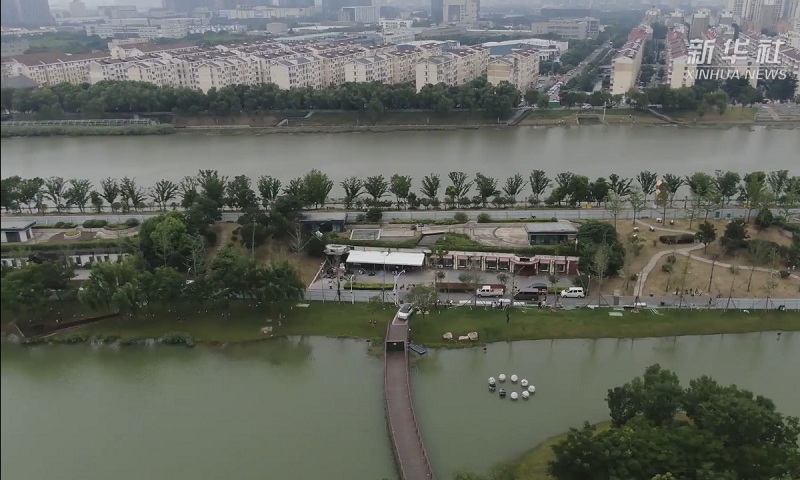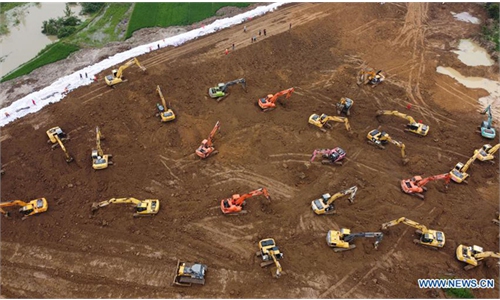
An aerial view of the river bank fitted with bars and restaurants in Nanjing of East China's Jiangsu Province Photo: screenshot from a video by Xinhua News Agency
Nine people in Nanjing of East China's Jiangsu Province have been punished after part of the embankment that runs along the city's iconic Qinhuai River, a tributary in the lower reaches of the Yangtze River, was found to be hollowed out and fitted with high-end bars and restaurants, local government officials announced on Tuesday.
The nine include top management personnel from the construction company that built the illegal infrastructure and local government officials, according to the announcement.
The doors, windows, facilities, and walls of the construction have since been demolished as of Sunday night, but the building's concrete frame will be retained to prevent sediment from falling and displacement in the bank, thepaper.cn reported.
It was found that the shops in the back slope of the embankment remained open until Sunday even as the city continued its high alert level for flooding and heavy rain. Preliminary measurements show that the deepest part of the construction reached halfway into the embankment, CCTV news reported.
The infrastructure triggered wide criticism as it endangered the public's safety. Some netizens questioned why the infrastructure was allowed to remain while soldiers are fighting the floods throughout the region.
"How are they only 'suspected' of endangering public security? If thebank broke, the consequences would have been unimaginable," one netizen said.
"The soldiers and grassroots officials are risking their lives to fight the floods!" another commented.
Some online users questioned why the local authorities had not looked into the situation earlier as the construction had in fact been there for many years, and appealed that similar investigations should be undertaken for other constructions built along rivers.
Staff from China's Ministry of Water Resources arrived in Nanjing on Sunday night to investigate the possible environmental damage caused by the construction.
The construction, with five rooms that cover an area of 4,500 square meters, was built in 2012 by a developer called Jiangning city construction group, and used as a temporary bank management facility. Four of the rooms were later rented for catering purposes in 2013, according to media reports.
However, the group failed to acquire official approval for the construction as a green project. It decided to ask the business owners to leave in 2018, but they did not due to disputes over compensation.

